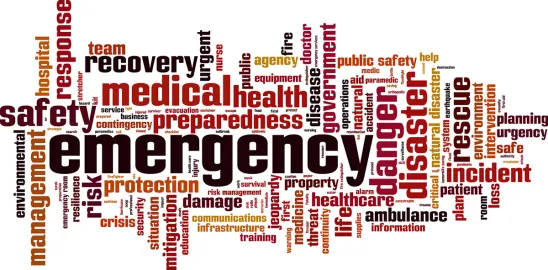Disasters, natural or otherwise, are usually unexpected and leave little time for advance action.
Hurricanes, named storms, floods, fire, and even crime, are types of disasters that communities across North Carolina may experience.
Equipping your community association with the knowledge necessary to navigate natural disasters or other unexpected events is crucial to minimizing damage and recovery.
Working effectively with members, residents, managers, and professionals before, during, and after a disaster is essential to developing a workable disaster plan, preparing the community, and restoring the community after the calamity has taken its toll. Community associations can minimize loss and facilitate recovery by proactively preparing for disasters in advance, including taking practical steps to secure physical assets and informing members of the community's disaster action plan.
Preparation and Prevention
-
Review your Governing Documents – Evaluate which items of property the Association is responsible for maintaining, repairing, and replacing to gain a general understanding of the Association's responsibilities before disaster strikes.
-
Review Insurance Coverage – Confirm that the association's insurance coverages are consistent with its governing documents and that the policy limits are sufficient.
-
Assign roles and responsibilities – Although community associations are typically not the arbiters of safety, the association will likely need to provide its members with information in the event of a disaster. Identify the manner in which the Board will communicate with its members and where member inquiries should be directed before, during, and after a disaster.
Protection
-
Conduct inspections – Work with professionals to evaluate and identify any "weak" spots in those items the association is responsible for maintaining, repairing, and replacing and develop a plan for those areas of concerns.
-
Assess the financial health of your Association – Evaluate reserve accounts and anticipate the financial ramifications of disasters. Consider a contingency fund for needs not covered by insurance.
-
Secure Areas – To the extent possible, secure common areas and community property in advance of natural disasters such as hurricanes or named storms.
Mitigation
-
Establish Relationships – Take steps to establish relationships with vendors and professionals in your area. This could include emergency services, restoration vendors, insurance professionals, and legal counsel.
-
Educate Members – Communicate with members regarding the community association's role in the event of a disaster.
Response and Recovery
-
Distribution of insurance proceeds, if any – Review your governing documents and work with professionals to determine how, when, and where insurance proceeds are to be distributed.
-
Coordinate with members for repair and/or reconstruction – Depending on the type of community (e.g., condominium, townhomes, or single-family homes), the community association may need to work with members on clean-up, repair, and/or reconstruction.
When disaster strikes, community leaders should be prepared to respond, oversee, and lead the recovery process in accordance with the community association's governing documents. Understanding the community association's role in the face of disaster is crucial for community resiliency and sustainability.




 />i
/>i
